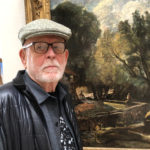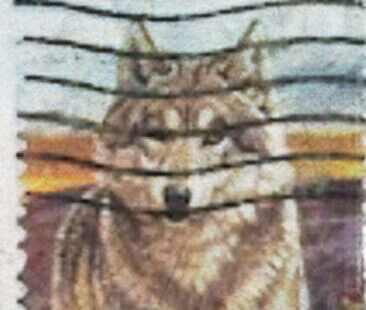Charles D. Tarlton
“Taking the Auspices”
David Willard, a Field Museum ornithologist, has measured
the Windy City’s dead birds since 1978. Data from his calipers
and scales reveal decades-long trends in bird bodies: Their legs,
on average, are growing shorter. They have lost weight. Their
wings are getting slightly longer.
—Washington Post, December 1, 2019
Picture flocks of little birds flying in under crystal atria and unable to find their way out. They flutter in circles until they see blue sky beyond and, sensing freedom, crash blindly into the hard glass. Their small thin bodies fall to the courtyard below to be swept up and calibrated. Even in the Pet Smart store or at the giant Costco, I’ve seen birds that somehow got in and couldn’t get out. They fly around all day looking for the escape route, chirping their piteous chirps up in the steel rafters.
likely souls yearning
to escape the weight even
birds struggle against
the sky’s gravity hammer
knocks everything to the ground
In the human war against the birds, we have put up invisible barricades that lure the innocent to catastrophe, and then we process their dead bodies, reconnoitering against Nature. One side of our collective schizophrenia sets these traps for the unwary, while the other side bemoans the coming environmental disaster. The birds, poor birds, are caught in the middle. Cassandra studies the dead and makes dire predictions, while Pollyanna designs yet bigger traps.
Bruegel the Younger
painted the dead fall bird trap
metaphorically
amidst icy winter play
brought the ceiling down to earth
Last fall, I was standing at the sliding glass doors of our kitchen, looking out at the lawn and the trees were just starting to show their reds and yellows. At the far end of the yard, a Blue Jay was sitting on a wooden fence post. Abruptly, he flew off the post and headed straight toward me. He was coming fast and I instinctively stepped back. He kept coming and then crashed madly into the plate glass door and dropped dead to the ground.
a true suicide
he was trying to get in
not wanting to fly
anymore, to end freedom
somehow get in through the glass
Dark-eyed Juncos, Yellow Rails, Brewer’s Sparrow, and even a Tennessee Warbler were all among the fallen found below the glass. Once you’ve imagined them after that, after they were pinned to boards like moths, who could ever picture them as magnificent, all colored feathers and alive, alive and flying? When I was pretty young, my father bought my brother and me Daisy “Red Ryder” BB guns. When we got bored shooting targets and beer cans, we would hunt songbirds in the orchard. I know, I know! The horror of it! What I remember most was the difference between fat, nervous, and songful House Finches spied upon a branch, and the limp, stuffed feel of a dead one in your hand.
the poetry lies
in the differences between
live birds and the dead
their muffled unheard singing
down on the floor of the mall
On the island of Malta, they hunt songbirds for sport, all the while insisting the birds are for food! One Sunday, we were out for a drive on Malta’s little back roads and, not far from Dingli, we came upon a group of hunters lying in wait. Their caged Judas-birds hung in rows from tree branches singing their treacherous songs, luring in the wild birds. The hunters were dressed in military camouflage, with cartridge belts across their chests, and 12-gauge Beretta EELL shotguns across their knees! Strings of tiny lifeless feathered lumps hung around each hunter’s neck.
we are so complex
and inventive when it comes
to killing little
birds. We build mountains of death
out of glass, throw wild birdshot
Skewed, the methods of natural selection sort among clutches of new birds, saving longer-winged mutations and runts for the future, while their brother and sister birds, born the spitting image of father and mother, die at the bottom of the compluvian, forgotten and unselected—too fat, too long, their truncated wingspans. Darwinism may elect new streamlined birds for the future, but the new birds found under the glass plafonds in Chicago were dead ones. Natural selection had not reckoned on us.
we are devolving
into vitiated Time
fat and cancerous
yet the birds go on and on
warn us with their pitiable deaths

About the Author
Charles D. Tarlton is a retired professor who lives and writes (now) in Old Saybrook, Connecticut, with his wife, Ann Knickerbocker, an abstract painter.

A wonderfully written, poignant, yet sad write, Charles. I was unaware of how the birds are changing physiologically. I must say, after I finished reading, I let out a heavy sigh.
In January 1997 an immature Cooper’s hawk missed the birds at the feeder and smashed our four foot square picture window, ending her own life. Whether they see some misleading reflection or some misleading transparency, birds are tragically unable to live with glass. We will never stop glazing windows, but one can’t help but think of the days before glass.
the sparrow flies in
flutters about the mead hall
then back to the dark
every living thing dies
but I don’t want to just yet